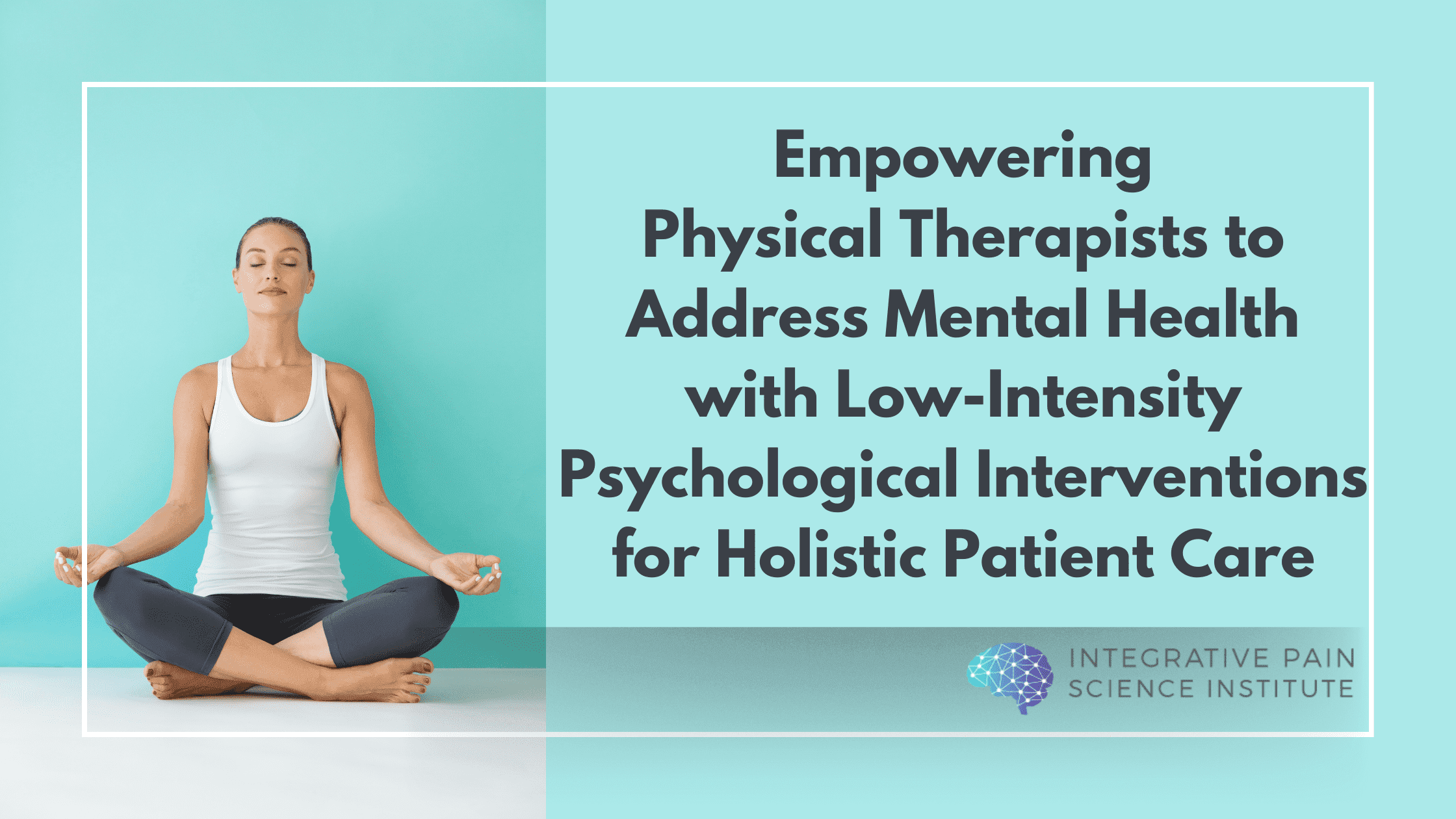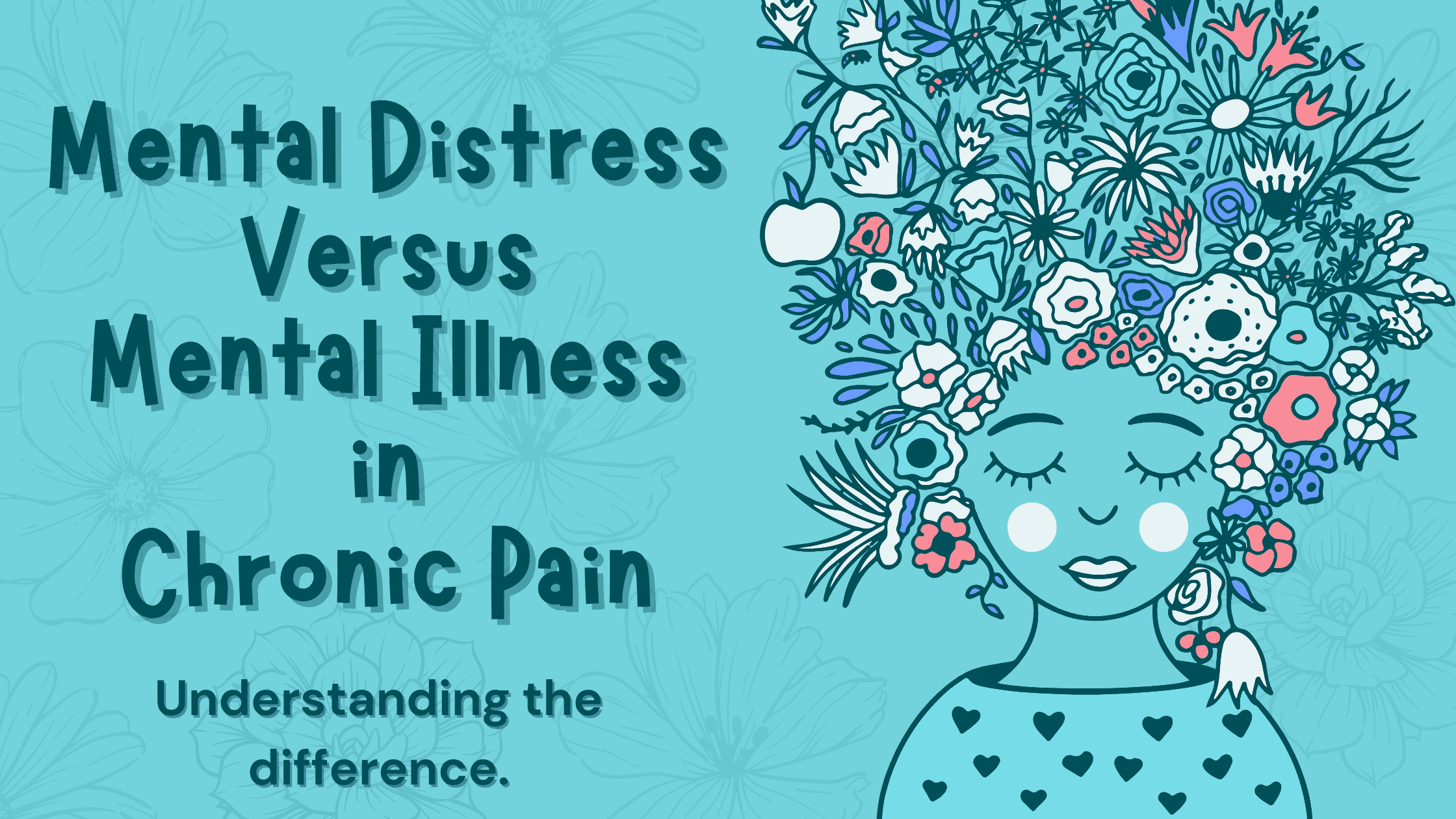Each May is Mental Health Month, a time to raise awareness and take action to improve individuals and societies’ mental health and wellbeing.
In 2020, the American Physical Therapy Association House of Delegates passed position #P06-20-40-10: “It is within the professional scope of physical therapist practice to screen for and address behavioral and mental health conditions in patients, clients, and populations.”
Physical, behavioral, and mental health are inseparably interconnected. As such, physical therapists can play an active role in preventing, managing, and promoting mental health. This includes a range of actions that increase the chances of more people experiencing better mental health. Such programs, introduced across clinics, schools, workplaces, and communities, usually target stress which can result in mental and physical disorders if left unaddressed.
Preventing mental illness and promoting good mental health involves the creation of services that support mental health and allow people to adopt and maintain healthy lifestyles.
Physical therapists have many interventions which support mental health and wellbeing. From exercise, physical activity and nutrition to stress management and psychologically informed care we can improve mood and boost our patients ability to cope with distress related to depression and anxiety.

Mindfulness-and-Acceptance-Based interventions
Mindfulness-and-Acceptance-Based interventions (ACT & mindfulness) constitute a family of treatments proven to promote mental wellbeing. These methods address conditions commonly treated by physical therapists including pain, stress, hypertension, cardiovascular disease, sports performance enhancement, immune function, tissue healing, geriatric, pelvic, and pediatric health.
Mindfulness-and-acceptance-based interventions (ACT & mindfulness) can be used to support the creation of behavioral and mental health services in PT practice.
ACT for Chronic Pain and Mindfulness-Based Pain Relief
A 2020 randomized controlled trial in the European Journal of Psychiatry found mindfulness to be just as effective as traditional CBT. Mindfulness also has the potential to be more acceptable and enjoyable to patients, less stigmatizing, and are cost-effective. Mindfulness and acceptance-based interventions in physical rehabilitation are primarily used to help clients with chronic pain adapt to illness and disability, which promotes functional recovery.
Physical therapists can support and promote services which optimize behavioral and mental health and enhance the well-being of society.
Mental Illness is on the Rise in the United States of America
The burden of mental illness in the United States is among the highest of all diseases, and mental disorders are among the most common causes of disability. Mental illness increases the risk for many types of physical health problems. Similarly, the presence of chronic conditions can increase the risk for mental illness.
Many view the treatment of chronic pain as “complex” because it is affected by many factors in addition to pain intensity, such as your emotional state (“I am angry that I am feeling this way”), beliefs about pain (“This pain means there’s something seriously wrong with me”), expectations (“These painkillers aren’t going to work”), and environment (“I don’t have anyone to talk to about how I feel”).

In fact, pain is generally recognized to be associated with three major components:
1. Physical sensations
2. Emotional responses to the sensations
3. Social effects of the experience
Psychosocial factors of the pain experience, such as pain catastrophizing, are well known yet few professionals have the tools to intentionally target this construct in practice. Mindfulness and acceptance are positive psychological factors which impact pain catastrophizing in a meaningful way. Together they alleviate distress, and promote both physical and mental wellbeing.
However, there continues to be a gap between the hype and the research.
Chronic pain conditions have a bidirectional association with mental wellbeing.
One significant challenge is the research supporting psychologically informed
Physical therapy has mostly left out mindfulness and acceptance-based interventions even though the evidence is strong and more abundant than popular interventions such as pain education:
• A 2011 review found mindfulness as effective as cognitive behavioral therapy in reducing depression and anxiety for patients coping with chronic pain (Veehof, et al).
• A 2012 review of people with lower-back pain found limited evidence that mindfulness can improve pain acceptance (Cramer, et al).
• A 2016 meta-analysis reported significant improvements in pain & disability (Veehof, et al).
• A 2019 meta-analysis found moderate effects in favor of mindfulness- and acceptance-based interventions compared to controls in pain. (Haugmark et al).
Mindfulness and acceptance-based interventions also reduce pain intensity!
Dr. Tatta’s simple and effective pain assessment tools. Quickly and easily assess pain so you can develop actionable solutions in less time.
The Interconnectedness of Physical and Mental Health and Wellbeing
As licensed healthcare professionals, physical therapists are well aware of the bidirectional relationship between mental and physical health. You readily identify this association and its influence on biological, psychological, and social outcomes.
In addition, there is a never-ending flow of evidence-based literature and media stories pointing to lifestyle factors, environment, social determinants of health, and health equity.
It can seem like a daunting task to consider all of these factors and overwhelming to create a treatment plan that is actionable and achievable. There never seems to be enough time to effectively educate and treat the patient.
To prevent overwhelm and deliver effective care professionals are adopting new microlearning interventions to treat people with complex health conditions.
Microlearning is the acquisition of knowledge or skills in the form of small units. The advantage of these short, buildable interventions is that they demand a low time commitment from both providers and patients yet deliver concentrated snippets of actionable information.
Because microlearning places emphasis on repetition, practice, and reinforcement over time, it can increase knowledge retention, proficiency, and long-term health behavior change.
On this week’s episode of the Healing Pain Podcast, I shared a live patient demonstration of a microlearning intervention called dropping an anchor. This short, simple, yet powerful technique can be used to target and ease pain catastrophizing.
Dropping an anchor helps people momentarily cope with fear, pain-related anxiety, rumination, difficult emotions, or any challenge that shows up in the therapy room. It is also a wonderful way to begin a therapy session with a sense of calm and groundedness.
Check out the live demonstration here!

The typical medical intervention in a clinical trial is often 90-minutes long! That is a lot of time and not realistic for most healthcare professionals in a busy practice setting. In contrast, we are learning that micro-interventions of 5-10-minutes may be the best way to cultivate continuous health behavior change.
A 2021 randomized controlled trial in the European Journal of Pain found that internet-delivered acceptance and commitment therapy using microlearning interventions produced a broad range of outcomes for chronic pain, with positive results on pain interference, mood as well as pain intensity for longtime chronic pain sufferers. Outcomes were sustained at a 1-year follow-up
Microlearning techniques and interventions are a key part of the mindfulness-and-acceptance-based methods professionals learn through the Institutes courses.
Embedded inside the ACT for Chronic Pain and Mindfulness-Based Pain Relief course are dozens of specific microlearning exercises which easily fit into a busy practice setting.
You don’t have to do it all.
In fact, small, concentrated, and consistent snippets may be the best way to move people toward health instead of being engulfed by a sea of information.
Start small and try dropping an anchor today with one patient. My guess is you and your patient will be pleasantly surprised with the outcome and see an immediate improvement in mood and mental wellbeing.
Learn more about interventions which support behavioral and mental wellbeing here!



